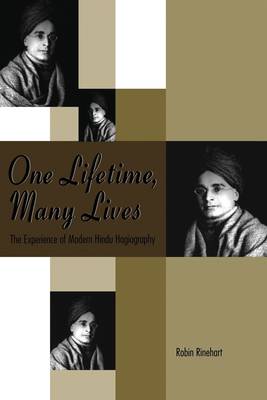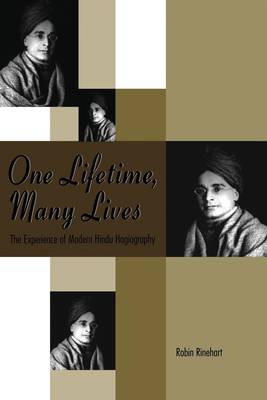
- Retrait gratuit dans votre magasin Club
- 7.000.000 titres dans notre catalogue
- Payer en toute sécurité
- Toujours un magasin près de chez vous
- Retrait gratuit dans votre magasin Club
- 7.000.000 titres dans notre catalogue
- Payer en toute sécurité
- Toujours un magasin près de chez vous
Description
Hagiography, the saint's life, is one of the most popular genres of religious literature in India. For this study, Robin Rinehart has delved into the multiple written and oral accounts of the life of Swami Rama Tirtha (1873-1906). While the earliest accounts of his life portray him as a deeply spiritual man and compelling religious leader, the most recent accounts make far more sweeping claims about him as an avatar and as the primary force behind India's achievement of independence from the British in 1947. Through analysis of the rhetorical strategies of those who have written about his life (his hagiographers), Rinehart shows that descriptions of the experience of being in Swami Rama Tirtha's presence are a central feature of these accounts. The differences between the experiences of close disciples of the Swami and those of followers of a later period help account for the radical changes in the portrayal of the Swami in the hagiographical tradition. Focusing on the role of the hagiographer as mediator between the saint and the saint's followers, Rinehart highlights the role of hagiographers in shaping these followers' communities.
Spécifications
Parties prenantes
- Auteur(s) :
- Editeur:
Contenu
- Nombre de pages :
- 240
- Langue:
- Anglais
- Collection :
- Tome:
- n° 6
Caractéristiques
- EAN:
- 9780788505553
- Date de parution :
- 02-01-99
- Format:
- Livre broché
- Format numérique:
- Trade paperback (VS)
- Dimensions :
- 154 mm x 229 mm
- Poids :
- 272 g







